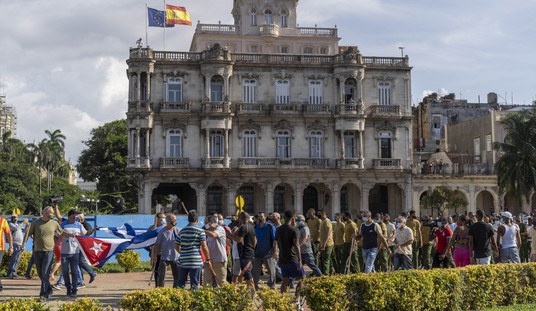The Second Circuit Court of Appeals upheld the convictions of three terrorists convicted prior to 9/11 of working with al-Qaeda to attack American interests. The three-judge panel ruled that the requirement for warrants and Miranda warnings do not apply to American citizens living abroad, which may surprise privacy advocates. The ruling will almost certainly pique the curiosity of the Supreme Court in this session:
The authorities may lawfully conduct searches and electronic surveillance against United States citizens in foreign countries without a warrant, a federal appeals court panel said on Monday, bolstering the government’s power to investigate terrorism by ruling that a key constitutional protection afforded to Americans does not apply overseas.
The unanimous decision by a three-judge panel of the United States Court of Appeals for the Second Circuit, in Manhattan, came in the case of three Al Qaeda terrorists convicted a few months before 9/11 in a conspiracy that involved the 1998 bombings of two American embassies in East Africa. …
While noting that Mr. el-Hage “suffered, while abroad, a significant invasion of privacy by virtue of the government’s yearlong surveillance of his telephonic communications,” the panel offered a detailed analysis of why the search was reasonable under the Constitution, given the “self-evident need to investigate threats to national security” that foreign terrorist organizations presented.
The panel said the electronic surveillance was justified — and reasonable — for a number of reasons, including that “sustained and intense monitoring” was necessary to understand a “complex, wide-ranging and decentralized” organization like Al Qaeda; and that members of covert terrorist organizations often communicated in code.
The decision did not involve the warrantless surveillance of communications between US and foreign locations, but it may have done enough to undermine any challenge to that NSA program and even the prevoius Gitmo decisions by the Supreme Court. In this case, the court ruled that the Constitutional limits on the executive at war do not apply to areas outside of American sovereignty, even when involving American citizens. In Boumediene, the Supreme Court strongly implied the opposite, even with non-citizens.
That may be enough for the Supreme Court to quickly grant certiorari for this case. The obvious tension between Boumediene and el-Hage will have to be resolved, one way or the other. Either the Constitution’s reach ends at the waters’ edges, or it reaches everywhere and applies to all living human beings.
Apart from that conflict with recent precedent, this ruling gives welcome clarity to the role of the federal judiciary in the fight against international terrorism. The Second Circuit gives great latitude to the executive branch to fight this new kind of war properly, with only common-sense involvement by the judiciary. The ruling also blocks defendants from accessing classified data critical to national security, although their attorneys can view it if cleared for access. That will protect the intelligence gatherers and make it safe for us to process detainees.
As the Times notes, that will also make it easier to claim that we can process foreign terrorists through the federal judiciary. That argument can be made, but the better argument is that foreign terrorists captured by our military or intelligence agencies don’t belong in federal court in the first place. Just as in every other war we’ve fought, unlawful combatants should get military tribunals and swift justice. The Hamdan sentencing showed just as clearly that these detainees don’t need the federal courts to get a fair hearing.
Update: Saneworks disagrees that tension exists. It seems to me that this decision allows warrantless searches, including surveillance, on American citizens abroad that would not pass muster within the US, which is where that tension exists. They rely on a “reasonableness” standard, but specific to the intel need and the location of the subject outside the sovereignty of the US.







Join the conversation as a VIP Member